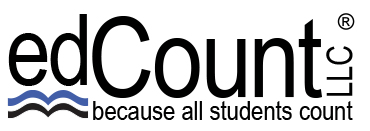We are pleased to announce that the SCILLSS project has been recognized by the American Education Research Association (AERA) as first place winner of the AERA 2020 Division H’s Outstanding Publications Competition in Category 4: Assessment & Accountability! The award is a testament to the significant contributions that the SCILLSS states and partners have made in developing a pair of assessment system evaluation protocols and an accompanying digital workbook. For a complete list of SCILLSS resources, visit the project website at www.scillsspartners.org.
SCILLSS (Strengthening Claims-based Interpretations and Uses of Local and Large-scale Science Assessment Scores) is a four-year project that brings together the Nebraska Department of Education (NDE), the Montana Office of Public Instruction, the Wyoming Department of Education, and a team of researchers and educational measurement specialists including edCount, LLC, SRI International, ACS Ventures, and an elite technical advisory panel of science and assessment experts. SCILLSS is funded by an Enhanced Assessment Grant that the US Department of Education awarded to the NDE in April of 2017. Its purpose is to bridge the gap between state-, district-, school- and classroom-level interpretation and implementation of recent shifts to three-dimensional science standards and assessments.
SCILLSS partners, led by Drs. Ellen Forte of edCount and Andrew Wiley of ACS Ventures, created the set of award-winning publications that are designed to (a) provide state and local educators with a grounding in the principles for high quality assessment that are critical to the appropriate selection, development, and use of assessments in educational settings, and (b) offer a framework for making decisions about whether to develop or adopt tests and for evaluating tests currently in use. These publications include:
- A Digital
Workbook on Educational Assessment Design and Evaluation
Through five interactive chapters, this workbook provides an in-depth exploration of the purposes and uses of educational assessments and the concept of validity and presents a series of key validity questions that guide the evaluation of assessment scores for their intended purposes and uses. - Ensuring
Rigor in State Assessment Systems: A Self-Evaluation Protocol
Ensuring Rigor in Local Assessment Systems: A Self-Evaluation Protocol
Building upon the key validity questions from the digital workbook, these two protocols are specifically designed to assist state and local educators in evaluating the assessments that make up their assessment systems.
Congratulations to everyone involved and stay tuned to the AERA website (http://aera.net) for additional information about the award.
